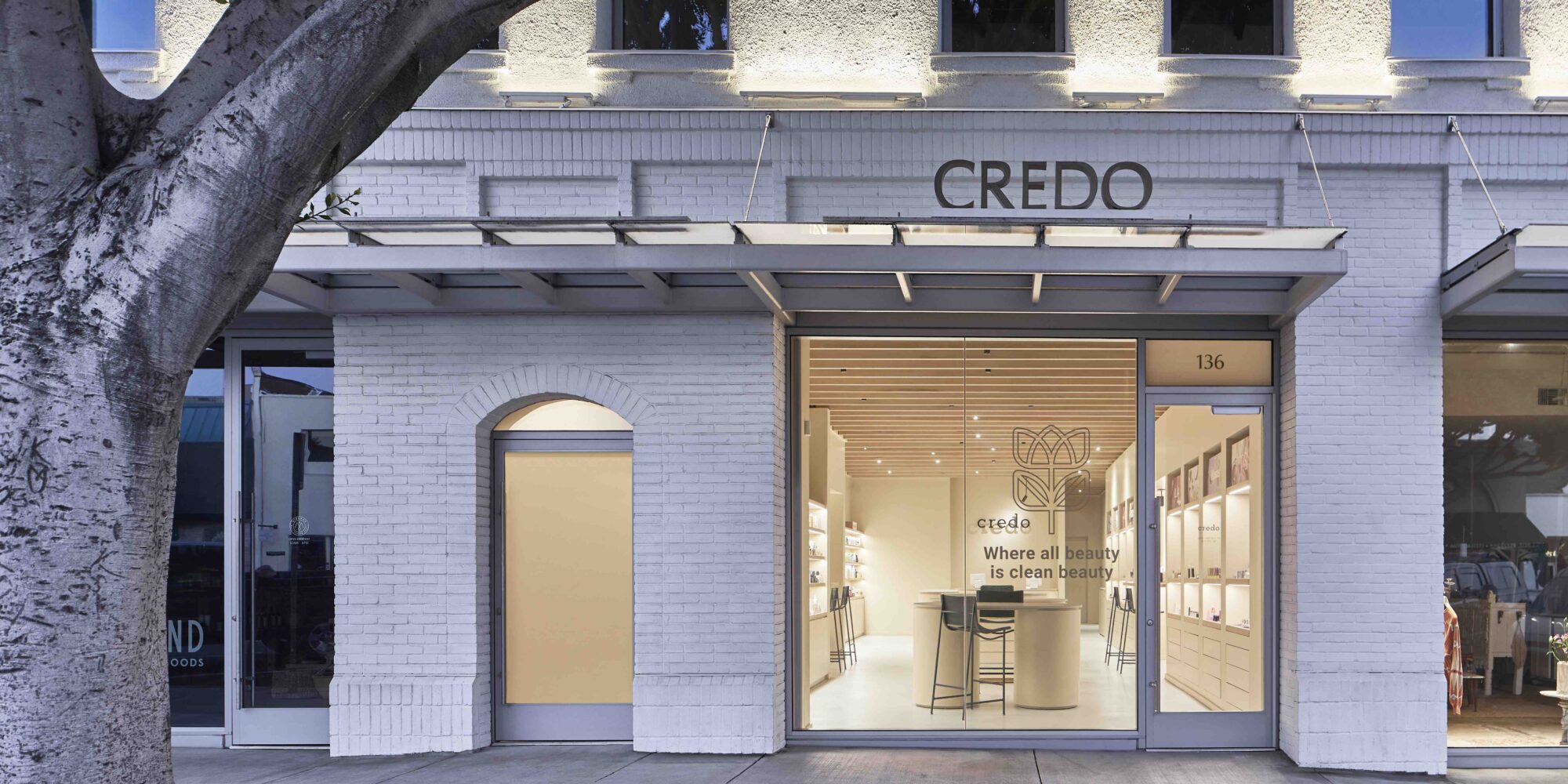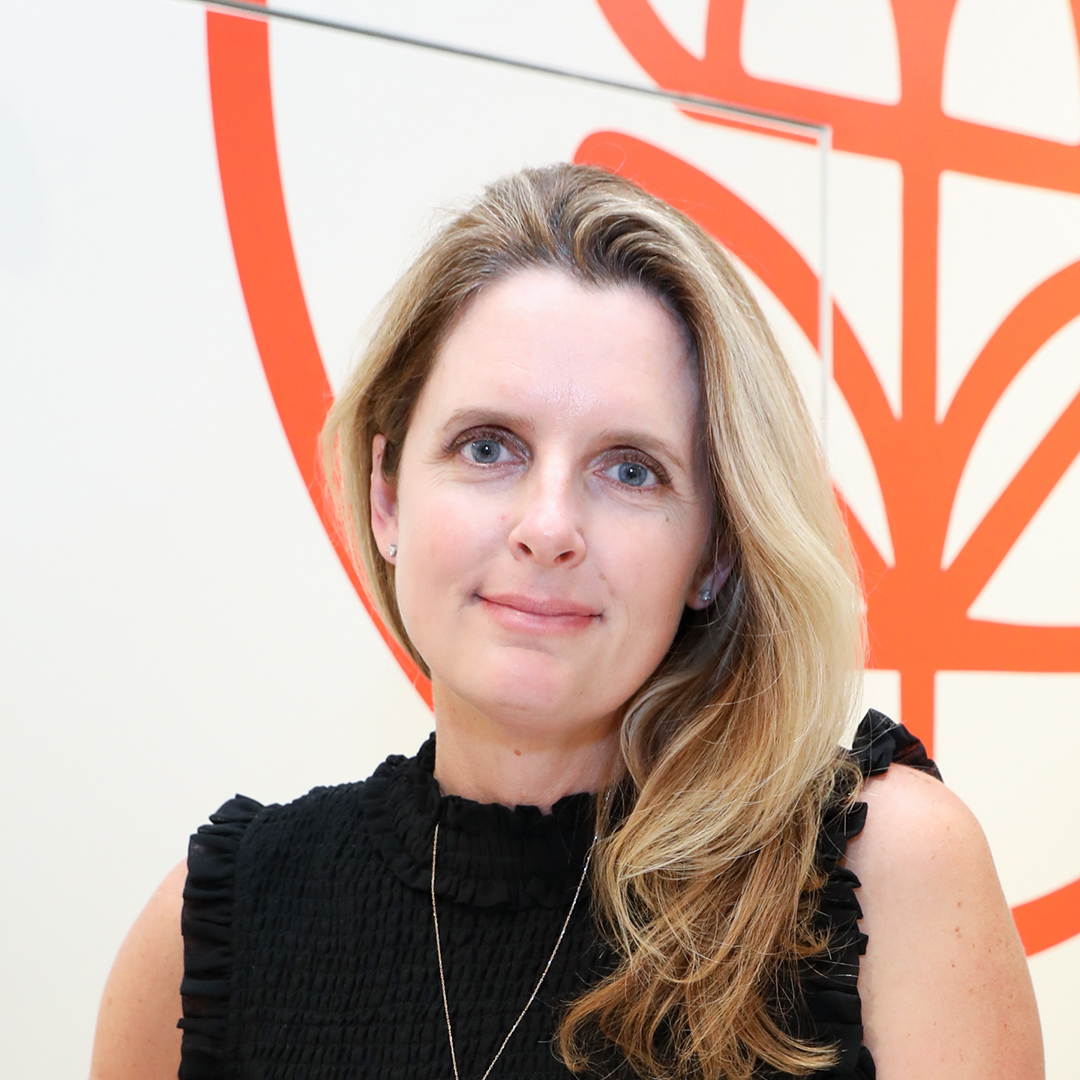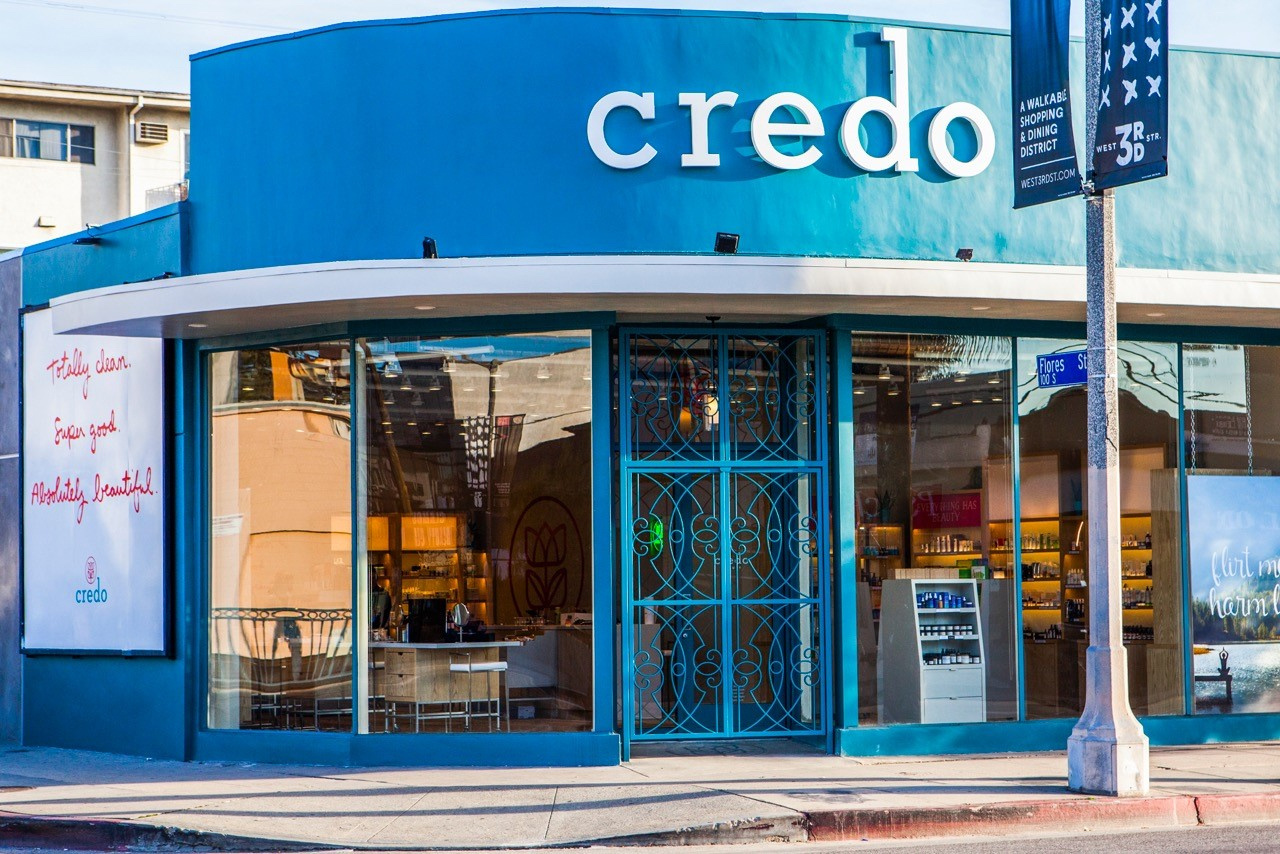
Credo Looks To 2025 As A Turnaround Year Following A Tough 2024
After a year of grappling with customer cautiousness, postponed vendor payments, corporate cost cutting, paused store openings and flat sales, Credo is looking to bounce back next year with enhanced efficiency and experiences, but questions remain about the relevance of clean beauty retail today as the once niche beauty segment has become ubiquitous.
The San Francisco-based NextWorld Evergreen-owned clean beauty retailer’s sales started to dip in the fourth quarter last year as price consciousness rose among its well-heeled customers, and store foot traffic declined by a single-digit percentage in the first half of this year. Confronting falling revenues, as reported by the publication Business of Fashion, in the spring, it slashed its corporate staff from 52 to 38 people. Also in the spring, Credo’s partnership with Ulta Beauty to curate a clean beauty assortment for the chain ended.
Annie Jackson, CEO and co-founder of Credo, identifies macroeconomic factors like lingering inflation and lofty interest rates as behind customers’ price consciousness. “We saw it in traffic decline, but we also saw it in AOV. AOV was holding steady, but conversion was slightly dipping and that points to exactly the issue,” she says. “Customers are just not wanting to spend, but they’re buying the things that they know they need.”
The sales slide caused Credo, which forecasts sales this year will be roughly equal to 2023’s sales, to fall behind on payments to brands, a not unusual occurrence at retailers both big and small dealing with a cash crunch of late as inventory levels misalign with demand. Jackson declines to comment on how many brands are currently owed money by the retailer, but expects the issue to be resolved at the beginning of December.
“For what we faced in the beginning of this year, I’m pretty satisfied,” she says. “I think there’s a lot of upward momentum going into next year, and I really feel like we’re operating from a place of strength now.”

Jackson cited store foot traffic increasing at double-digit rates in September and October as a sign of strength. She attributes the increase in part to the biannual Friends of Credo sale and key hires made in advance of the corporate staff reduction. Jessica Trieber, former senior director of global brand management for Fenty at LVMH Moët Hennessy Louis Vuitton incubator Kendo, became VP of brands at Credo in April. Lydia Kandel, who left as Credo’s VP of marketing in 2022, rejoined the retailer as VP of marketing and digital in May.
“These changes have been really pivotal for us,” says Jackson, who became CEO in late 2023, succeeding Stuart Millar, the present CEO of haircare brand Harklinikken. “It’s really just about getting back to what we know how to do, which is to run the stores optimally and offer our client the best and most exceptional experience.”
She adds, “We got into a place where a lot of people brought a lot of complexity and a lot of different work streams that weren’t creating a growth engine that worked. Now, I feel fully involved in every aspect of the business again, and I know and trust the people that are heading up the departments…These things are incredibly painful, though, and it’s something that will stay with me for a very long time.”
Credo’s slimmed-down team has shepherded newness into its assortment to excite customers. Timed with the holiday shopping season, it’s unfurled home goods by bringing in the brands Atmo Home, Caftari, Siblings and Vitruvi and is eyeing scalp care and sun care for future opportunities.
“There’s a lot of upward momentum going into next year.”
The injection of newness follows Credo dialing back new brand introductions and shrinking its brand roster. It carries approximately 120 brands, including Kosas, Necessaire, Osea, RMS Beauty, Ilia, Westman Atelier and Ursa Major. About half its sales are from its 15 brick-and-mortar stores and half are from its website. The site was revamped in September last year. An update to Credo’s loyalty program is forthcoming, and it’s rolling out educational tools to its store employees to help them facilitate retail transactions.
Credo is charting future growth in a beauty industry inundated by clean beauty where consumers are seeking science-forward brands. Started in 2015 and billed as the “Sephora of clean beauty,” Credo has used the tagline, “where all beauty is clean beauty” and promoted that it has the “largest selection of clean beauty products,” but it aims to not solely be a destination for people prioritizing clean beauty. To understand the connection of its loyal customers to its concept, Credo conducted a series of one-on-one interviews with them.
“We like to think of Credo as a beauty retailer where every product just happens to be clean,” says Jackson. “This distinction matters to us. We’re building personal relationships in our communities and investing deeply in storytelling that showcases the unique aspects of the selective assortment of brands we carry…We dedicate a disproportionate amount of time and resources to education and are highly selective in choosing our brands, so we can provide our customers with a truly exceptional and bespoke beauty shopping experience. The customer is really looking for that right now.”
Last year, Credo opened three stores in the Los Angeles neighborhoods Silver Lake, Venice and Larchmont Village and extended to Washington state with a Seattle location. It had planned to open three to four locations this year, but pushed the openings back to support the stores it opened last year. In the spring of 2025, Credo is set to expand to Oregon with a store in Portland. There are no immediate store openings slated after the Portland opening. Credo’s top-performing stores are the New York units in SoHo and Williamsburg and the San Francisco unit on Fillmore Street.

“Openings come with a great amount of expense, and we just want to make sure we’re giving these stores all of our attention,” says Jackson. “We need to make sure that we’re getting the assortments right by location and doing that due diligence before we start opening more.”
Jackson is cautiously optimistic with the holiday shopping season nearing. While Credo traditionally participates in Black Friday/Cyber Monday promotions, it tries not to overly rely on them to buttress sales. “Every other brand that we carry and retailers where we have overlap in brands have been highly promotional this year,” says Jackson. “At the end of the day, that’s not sustainable. We’d like to reduce our dependency on promotions and that’s why we are spending so much time on in-store experience.”
JP Mastey, founder of Corpus, a brand stocked by Credo that experienced delayed payments from the retailer, but has been made whole, is optimistic, too. “Credo has continued to be a great partner, especially in terms of communication,” he says. “The second half of the year has been very positive for Corpus, and recent sales figures with Credo show clear growth moving from the second half of Q3 into Q4.”





Leave a Reply
You must be logged in to post a comment.